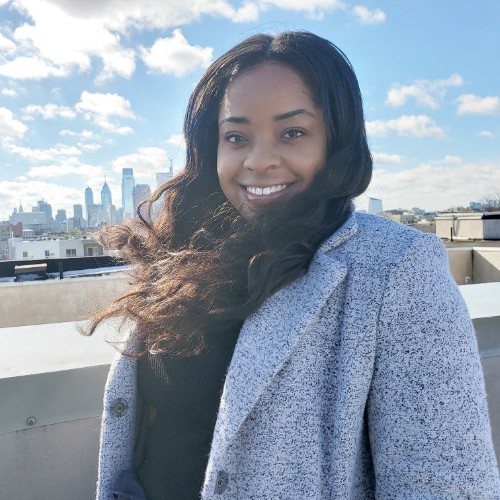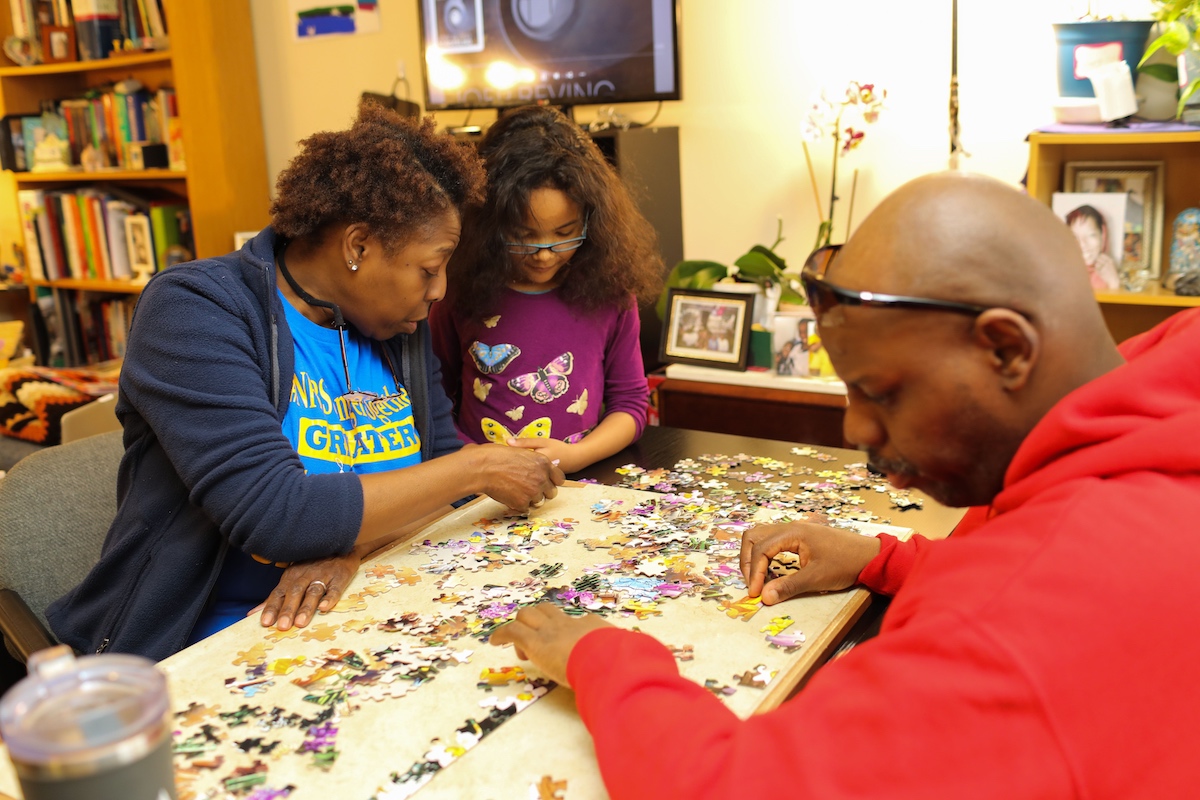
This report is part of Thriving, a yearlong storytelling initiative from Technical.ly focused on the lived experiences of Philadelphia and comparative city residents. The goal is to generate insights about the economic opportunities and obstacles along their journeys to financial security. Here's who we're focusing on and why.
“At first, I didn’t know it. I just thought I was a little groggy, so I just went into the bathroom,” she said. “I wash my face and then I’m like, ‘Lyvette, you got to open your eyes, girl. You got to wake up.’”
She raised her index finger to try and open her eyelid.
“And then when I realized my eyes were open but I saw nothing. I said, ‘LyVette, girl, you’re blind.’”
That was in 2017.
Byrd became one of about 246,000 Philadelphians, or 16% of the total city population, with a disability. She suddenly had to navigate her life in a different way from what she was used to — and from what other blind people are used to.
“So if I was born blind and my community is blind, everything is inside this blind world,” she said. “But for a suddenly blind person, they’re sitting on the side of the curb somewhere, rockin’, trying to figure out the rest of their life before they even get to that point.”
Byrd was a college-ready counselor for high school students, and she spent a lot of time in front of a computer screen. She couldn’t figure out how to do her work, so she left the job.
She contacted an agency that helps people get back into the workforce by paying for resources like a screen reader, Braille displays and speech recognition software. But she was waitlisted due to a lack of funding.
“So for a while I just sat like, what am I going to do now?” she said.

LyVette Byrd. (Photo by Dominique Nichole)
She went to the Philadelphia Department of Public Welfare.
“What I needed at this point for me was medical insurance,” she said. “I needed to be covered medically because I still need to see these doctors.”
And then she applied for Social Security disability.
“I needed to have just more than just nothing. Because the other thing that I was thinking at the time is that if I stay where I am, then I’m not going to progress,” she said. “This is where depression will set in. This is where different, other things I’ve seen as a counselor, people go deep in, and I saw myself heading that way.”
Byrd gets about $1,200 a month for her disability, plus food stamps. She found a two-bedroom apartment with the help of the Philadelphia Housing Authority.
“$1,200 or less is what most people get. I’m just grateful ‘cause we needed it,” she said. “But, even with that, we’re still below the poverty line. So what keeps us from, and I say ‘us’ as a collective, as a grouping of people that are disabled … How can we get above the poverty line?
These Thriving audio stories feature reporting by Nichole Currie and audio production by Rowhome Productions.
Join the conversation!
Find news, events, jobs and people who share your interests on Technical.ly's open community Slack

Philly daily roundup: Student-made college cost app; Central High is robotics world champ; Internet subsidy expiration looms

Philly daily roundup: Earth Day glossary; Gen AI's energy cost; Biotech incubator in Horsham

Philly-area startup for investing in real estate debt rebrands with wider offerings



